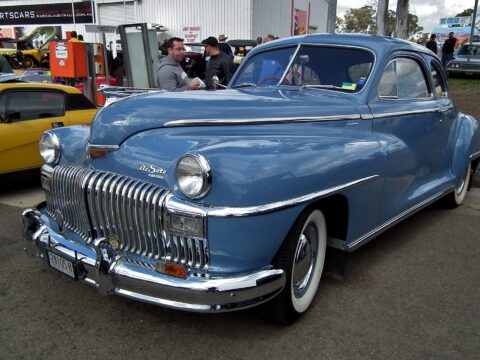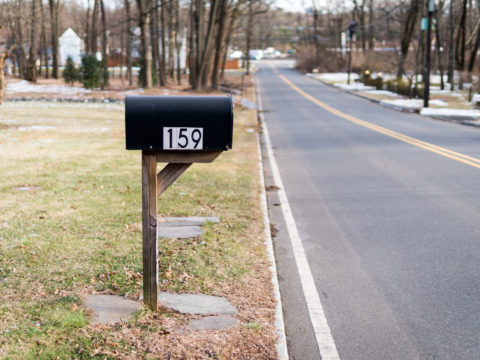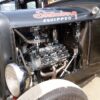Should you buy vehicles from government auctions? In this comprehensive blog post, we will explore the ins and outs of government car auctions, providing valuable insights to help you make an informed decision. We’ll begin by discussing government auto auctions and how they operate.
Next, we’ll explore why vehicles are sold at these events and who can purchase them. In addition, we will explore the pros and cons of procuring cars from these auctions to determine if it is truly advantageous.

Contents
Understanding Government Auto Auctions
At government auto auctions, the GSA and other governmental entities offer a variety of cars, trucks, and other vehicles to the public at competitive prices to generate revenue while disposing of surplus or seized assets.
The main goal is to dispose of surplus or seized assets efficiently while generating revenue for the government.
So, should you buy vehicles from government auctions? It depends on your situation and needs. Here are some factors to consider:
- Price: Government auctions often offer vehicles at lower prices than traditional dealerships. This price variation is because the government is not looking to make a profit but rather to get rid of surplus or seized assets.
- Condition: While some vehicles at government auctions are in excellent condition, others may require repairs or have other issues. It’s important to thoroughly inspect any car you’re interested in before placing a bid.
- Competition: Government auctions can be competitive, with many bidders vying for the identical vehicles. It’s essential to set a budget, stick to it, and be prepared to walk away if the bidding gets too high.
- Process: Buying a vehicle at a government auction can be more complicated than buying from a traditional dealership. You must register for the auction, provide a deposit, and follow specific bidding procedures. However, you can get a great deal if you’re willing to put in the effort.
How Do They Work?
Government auto auctions operate through a bidding process, where potential buyers place bids on vehicles they’re interested in. Public access to these auctions can be achieved both virtually and in person.
To participate, you must register with the auction platform, such as GSA Auctions, and provide the necessary documentation, like a valid driver’s license. Once registered, you can browse available vehicles, inspect them (if attending in person), and place your bids during the auction period.
Closing sentence: Government auctions are a great way to purchase vehicles at discounted prices, but it is essential to understand the process before taking part in one. Transition sentence: Knowing why these vehicles are being sold can help you decide if government auctions are exemplary.
Why Are Vehicles Sold at Government Auctions?
Vehicles are sold at government auctions for various reasons, including fleet turnover and seized assets. Government agencies like the GSA Fleet regularly replace vehicles to maintain efficiency and safety standards.
Additionally, law enforcement agencies may auction off confiscated or forfeited cars from criminal cases, allowing buyers to find unique models.
Eligibility to Purchase a GSA Fleet Vehicle
To be eligible to purchase a GSA Fleet vehicle, there are five essential requirements you must meet:
a) Age
You must be at least 18 and possess a valid driver’s license.
b) Financial Means
Potential buyers should have the financial means for payment in full within 24 hours of winning the bid.
c) Registration
Registration with an approved auction site is necessary before participating in any auctions.
d) Rules
Bidders must adhere to all auction rules and regulations set by GSA Fleet.
e) Arranging Transportation
Successful bidders are responsible for arranging transportation of their purchased vehicles.

Why Buy from a Government Auto Auction?
Buying from a government auto auction can be advantageous as it provides an opportunity to purchase vehicles at a lower cost than retail prices. These vehicles are often well-maintained, have low mileage, and come with service records. Additionally, buyers can have confidence in the legitimacy of the sale and the ownership documents.
Purchasing vehicles from government auto auctions offer several benefits, including:
a) Affordability
Vehicles are often sold at lower prices than in the private market.
b) Variety
A wide range of makes and models are available.
c) Maintenance records
Most government-owned vehicles have well-documented maintenance histories.
d) Transparency
Auctions typically provide detailed information about each vehicle’s condition and history.
Advantages and Disadvantages
| Pros: | Cons: |
| Lower prices | Limited test-drive opportunities |
| Well-maintained vehicles | Potential for hidden issues |
| Transparent bidding process | Intense Competition |
Researching the specific auction you plan to attend can help mitigate risks; websites like Auto Auction Mall offer valuable insights.
Purchasing a car from a government auction can be an economical approach to acquiring transportation. Yet, it is essential to consider the advantages and disadvantages before making such a choice.
A government auction for your next car purchase could be an economical option to explore if you want to save money.
So, is buying a vehicle from a government auction worth it?
Government auctions are a great way to buy cars, trucks, and other vehicles at a fraction of their retail price. These auctions are held by government agencies, auction houses, and other organizations that have seized vehicles or surplus inventory. The cars are then sold to the highest bidder, and the winning bidder takes the car home.
One of the benefits of buying a car from a government auction is that the vehicles are usually well-maintained. Government agencies and organizations take good care of their cars, which often have low mileage.
Additionally, the vehicles are usually sold as-is, so you can inspect them thoroughly before purchasing.
However, it’s important to note that buying a car from a government auction can be risky. You may not know the vehicle’s history, and there may be hidden problems you must be aware of. Inspecting the car thoroughly and knowing its market value before making a bid is essential.
Buying a car from a government auction can be a good idea if you want an affordable and well-maintained vehicle. Just be sure to do your research, inspect the car thoroughly, and know its market value before making a bid.
How to Get the Best Car Deals?
- Research: Before attending a government auction, research the vehicles being sold. You can find the auction catalog online and learn about the cars’ condition, mileage, and any known issues. This information will help you make an informed decision about which vehicles to bid on.
- Attend the preview: Many government auctions offer a preview period where you can inspect the vehicles up close. Take advantage of this opportunity to check the car’s condition, look for signs of wear and tear, and even take it for a test drive. This technique will help you avoid bidding on a vehicle that has hidden problems.
- Set a budget: It’s easy to get carried away at an auction and overspend on a car. To avoid this, set a budget before the auction and stick to it. Remember to factor in any additional fees like taxes, registration, and transportation costs.
- Be patient: It’s essential to be patient and avoid getting too caught up in the excitement of the auction. Wait for the right vehicle, and don’t bid too early or high. You may have to attend several auctions before you find the car you want at the price you’re willing to pay.
FAQs
Discover everything you need to know about government car auctions with our comprehensive list of frequently asked questions to help you find the perfect vehicle at an unbeatable price.
1. How Can I Tell If a Government Auction Is a Scam?
Be cautious of auctions that require upfront fees, request personal information, or offer deals that seem too good to be true. Research the auction company, read reviews, and confirm the legitimacy of the auction with the government agency it claims to represent.
2. What types of vehicles are sold at government auctions?
Government auctions sell many vehicles, including cars, trucks, SUVs, motorcycles, boats, and airplanes. These vehicles may be surplus, seized, or retired from government service.
3. How does GSA Fleet determine who is awarded the vehicle?
GSA Fleet determines who is awarded a vehicle through a competitive bidding process that considers the bidder’s financial ability to purchase and maintain the car and their past performance in buying vehicles from GSA Fleet. The highest bidder meeting these criteria is typically awarded the car.
4. Does the Government warranty its vehicles?
No, the government typically does not provide a warranty on its vehicles. Buyers purchase the cars “as is” with no warranty or guarantee, so it’s important to carefully inspect the vehicle and research its history before buying at a government auction.
5. Can you test-drive vehicles at government auctions?
It depends on the specific auction. Some government auctions allow potential buyers to test drive vehicles during the preview period, while others do not. It’s best to check with the auction organizer before attending the auction to find out if test drives are allowed.
In conclusion, buying a car from a government auction can be a good idea if you want an affordable and well-maintained vehicle. Just be sure to do your research, inspect the car thoroughly, and know its market value before making a bid.














